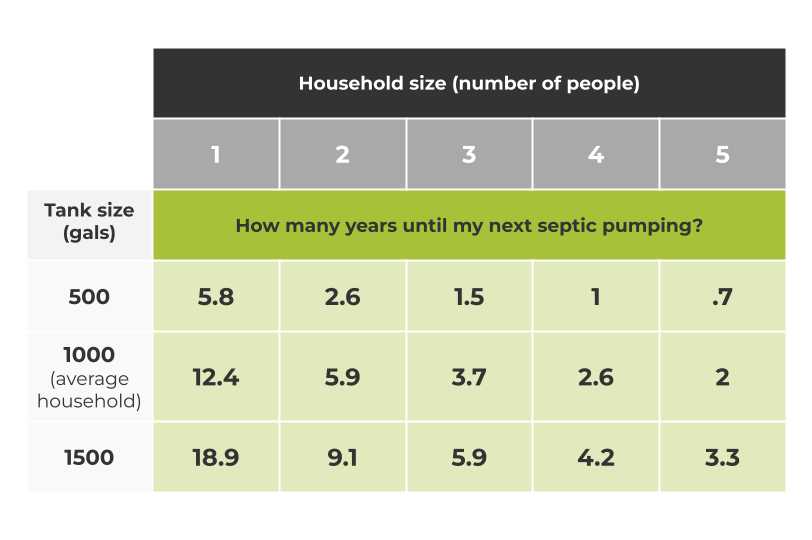
Septic tank pumping
Keep your system running smoothly with professional septic tank pumping. Our reliable service ensures efficient waste removal and prevents costly backups.
Septic tank pumping
Keep your system running smoothly with professional septic tank pumping. Our reliable service ensures efficient waste removal and prevents costly backups.
Your septic tank needs to be pumped more often than you think...


Your septic tank needs to be pumped more often than you think...
Household of two
1000 gallon tank
5.9
years
Household of three
1000 gallon tank
3.7
years
Household of four
1000 gallon tank
2.6
years
Household of
five
1000 gallon tank
2
years


Septic Services
Frequently asked questions
How often should I have my septic tank pumped?
Generally, it's recommended to have your septic tank pumped every 3 to 5 years. However, the exact frequency depends on factors like the size of your tank, the number of occupants in your household, and your water usage. Regular maintenance is crucial to prevent overflow and costly repairs.
How much does septic tank pumping cost?
The cost of septic tank pumping can vary depending on factors such as the tank size, location, and local service rates. Please contact us for a quote.
What signs indicate that my septic tank needs to be pumped?
If you notice any of these signs, it’s a good idea to have your tank inspected.
Slow-draining sinks, toilets, or showers.
Unpleasant odours around your property.
Gurgling sounds in your plumbing system.
Standing water or soggy areas in your yard near the septic tank or drain field
What can I do to maintain my septic system between pumpings?
To maintain your septic system and avoid frequent pumping, consider these tips:
Avoid flushing non-biodegradable items like wipes, sanitary products, or grease.
Use water efficiently to prevent overloading the system.
Direct rainwater away from the septic tank and drain field.
Regularly inspect and maintain the system, including checking for leaks and ensuring proper operation of the system components.
What does the septic pumping process involve?
Septic pumping involves using a vacuum truck to remove sludge and scum from the septic tank. The technician will access the tank through manholes, pump out the waste, and then inspect the tank for any potential issues. After pumping, the tank is typically reassembled and the area is cleaned up.


